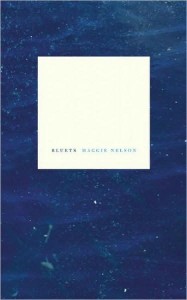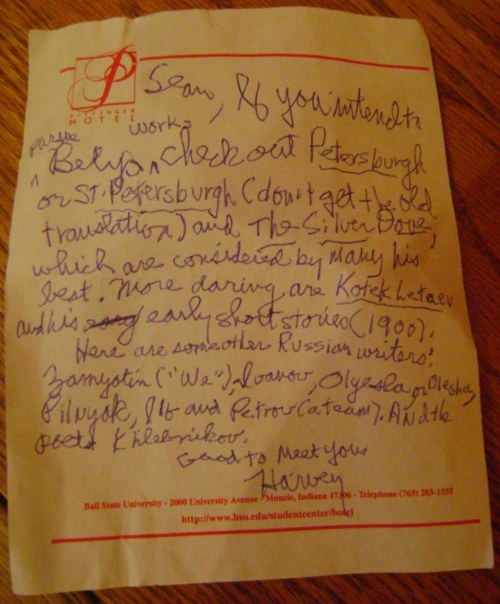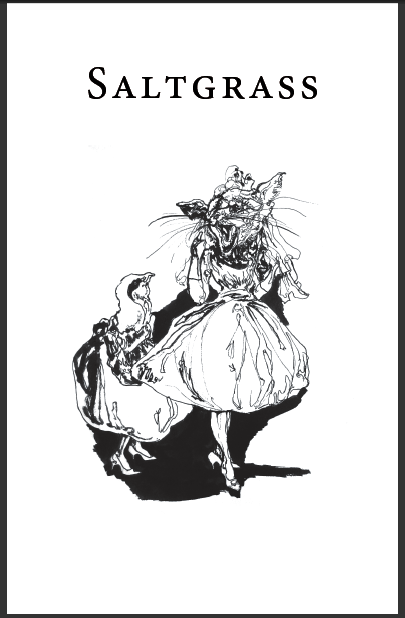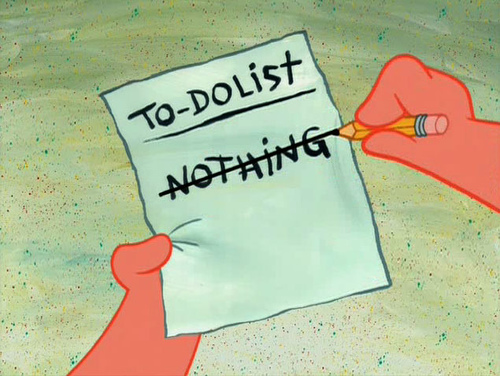The Well Read Man

Books are popular fodder for lists, and why not? There are so many books being published. Book-related lists can be useful in cutting through some of the noise in a time when more than 200,000 new books are released each year, in the United States alone.
Yesterday, Esquire released a list of 75 books every man should read. They make such lists regularly so the list, in and of itself, is not remarkable. There are some really great books included like Lolita and Call of the Wild and The Things They Carried and Winter’s Bone and The Spy Who Came In From the Cold. The list offers a nice blend of contemporary and classic fiction. I was particularly pleased to see Edward P. Jones’s outstanding The Known World mentioned. I cannot say there’s a book on that list that doesn’t deserve the recognition. The list is certainly very masculine in tone, but there’s nothing wrong with that. Great books are great books and there’s something to be said for muscular prose. My list would probably look somewhat different but so would yours. Reading is personal and taste is subjective.
It is curious, though, that out of all 75 books every man should read, only one, not two or five or seventeen, but one of those books, A Good Man Is Hard to Find by Flannery O’Connor, is written by a woman. I should be surprised by this imbalance but I’m not. Is anyone?
Twitter MFA
In which we do a close-reading of a Tweeter’s Tweet draft and assess its tone, theme, synecdoche and narrative arc, among other things. Today’s Tweet draft was written by Drew Kalbach. This is the final installment of Twitter MFA. Thank you for reading.
The Tweet draft:
my face is continually jealous of my face
Drew Kalbach’s Tweet draft utilizes a heavily deconstructed sonnet sequence to describe the dissolution of a romantic relationship between his face and his face. With its ABBA rhyme scheme–the pairing of ‘face’ and ‘face’ and the softly assonant ‘continually’ and ‘jealous’–Kalbach alludes to a Miltonic sonnet in 140 characters or less.
‘If you intend to pursue work’ by Harvey Pekar
A while back some of you were asking about Russian authors. Then yesterday I found a note on a shelf in my Man Room. It made me wistful and sad. It was from a genius and gracious man, Harvey Pekar. We had dinner a couple years ago. (He had onion rings, I had veggie nachos—neither of us eat meat in restaurants.) He talked jazz. I talked bow hunting. Then we discussed Russian authors. The next day Mr. Pekar walked into my office and handed me this exact note:
Here’s what I think it says, though maybe you could help. I couldn’t find some of these Russians, or figure out what exactly to look for, but possibly I just couldn’t decipher Mr. Pekar’s handwriting. Any help would be appreciated. (I found Andrey Bely and Khlebnikov–I mean the others.) I respect Mr. Pekar’s opinion, and following up on these authors would help us all who love Russian lit.
Sean, If you intend to pursue work, Belyo, check out Petersburgh or St. Petersburgh (don’t get the old translation) and The Silver Dove, which are considered by many his best. More daring are Kotekhetaev and his eary early short stories (1900).
Here are some other Russian writers: zamyotin (“We”), Ivanov, Olyesla or Olesha, Pilnyok, Ilb and Petrov (a team). And the poets Khlenikov.
Good to meet you
Harvey
* Update: just figured out IlF and Petrov.
SALTGRASS 6
I’m pleased to announce that the new issue (#6) of Saltgrass is available, starring these lovely contributors:
Cynthia Arrieu-King, Anselm Berrigan, Justin Carrol, Tina Brown Celona, J’Lyn Chapman, Cathy Linh Che, Sandra Doller, Brian Foley, John Gallaher, Anne Cecelia Holmes, Lily Ladewig, Heather Monley, GC Waldrep
What!
So you can order a print copy on our website: www.saltgrassjournal.blogspot.com
Only $5!
Please help us support our contributors and spread the word.
We will have an open reading month this June. We hope you submit.
Thanks,
Julia Cohen & Brian Foley
Editors, Saltgrass
www.saltgrassjournal.blogspot.com
Take two for wanting
1. Beecher’s Magazine is now available. Look at the list of contributors. I like how they show what’s poetry and what’s fiction.
2. Feast your eyes on the cover of Heather Christle’s new book, which will be available July 1:
In the Middle of the Event
To my mind, it lies in that blank residuum that I’m pursuing; and that must be beyond possibilities, because in the space of possibilities, Pierre Menard is doing nothing. He is doing totally zero, because in the space of possibilities the work exists, it’s Don Quixote, and he’s just copying it. If you believe in the metaphysics of possibility and probability, where everything is framed in identified states of the world, and so on, then Pierre Menard is doing nothing, totally nothing. Yet by reading Borges, you are really led to believe it possible that Pierre Menard has done something original; and the key thing to me is that what Pierre Menard has done is to write two chapters. He didn’t read them, he did’t just think of them. So, he really needed the material medium, the writing itself, in order to produce something that, when you read it, you say, well, although it’s the same — it has the same identity as Cervantes’ novel — it is materially a new work. And although my main object is the markets and finance, although that’s important and I identify the medium of contingency as the market in my specific case, in the end its generalization is also writing.
I also happen to be a writer, so I also speak for myself: writing, to me, is something that is beyond probability and ‘states of the world’. It’s something where the writer can really throw himself into a process of writing, blindly so to speak — and one of my favourite expressions is that he is then traversed by contingency, so he almost surprises himself with what he is writing. To me, that’s writing: even though you may have thought about it, and you had planned it, there are thoughts that you can only have through writing. I’m sure everyone has found that: there is no use really in planning in advance what you are going to write. Even if you do that, chances are that you’ll end up writing something completely different. I think that the true spark of writing comes when you find yourself surprised by what you have written; and I would even claim that there are thoughts that you can only have through the material process of writing.
So, writing to me is an attempt to get to that extraordinary or residual thing that surpasses probability and the states of the usual metaphysical conception; and which would allow us to twist chronology in such a way that, even though the event happens and it is only after the event that we can think it, somehow we establish communication with it outside time. Remember, I need to twist time itself in order to be able to predict the event ‘beforehand’, even though it has happened.
–Elie Ayache, “In the Middle of the Event” in The Medium of Contingency
In New York graffiti’s Golden Age, one of it’s most respected and prolific writers was—according to the eye witness account of another writer—a shy, eldery white woman who simply wanted everyone to accept Jesus. How will you spend your dotage?
Mulholland Drive, the TV pilot. From Mark Gluth (and the Dennis Cooper blog), Didion vs. Lynch.
My hometown Borders got closed

They were selling everything, including the bookshelves. (This is how any number of blog posts begin.) There were people in large hooded sweatshirts on corners waving signs that said “80-90% off,” and, in the store’s windows, there were giant yellow banners saying the same thing. I went on the third to last day. Large sections of the store were roped off, like the cafe area and the music section (though that section had been irrelevant since 2005 anyways). People wandered around aimlessly, looking totally lost, which was really the only way to inhabit the store since the selection had been so thoroughly decimated it was impossible to look for anything specific.
6 Books: Maggie Nelson on Nonfiction
 This is Part III in a series where I ask writers I like for 6 book recommendations according to some loose guideline. Part I is here; Part II is here. This week is another installment on nonfiction, this time brought to us by Maggie Nelson, author of Bluets (Wave Books), the forthcoming The Art of Cruelty: A Reckoning (Norton), and five other books of poetry, criticism, and essay.
This is Part III in a series where I ask writers I like for 6 book recommendations according to some loose guideline. Part I is here; Part II is here. This week is another installment on nonfiction, this time brought to us by Maggie Nelson, author of Bluets (Wave Books), the forthcoming The Art of Cruelty: A Reckoning (Norton), and five other books of poetry, criticism, and essay.




